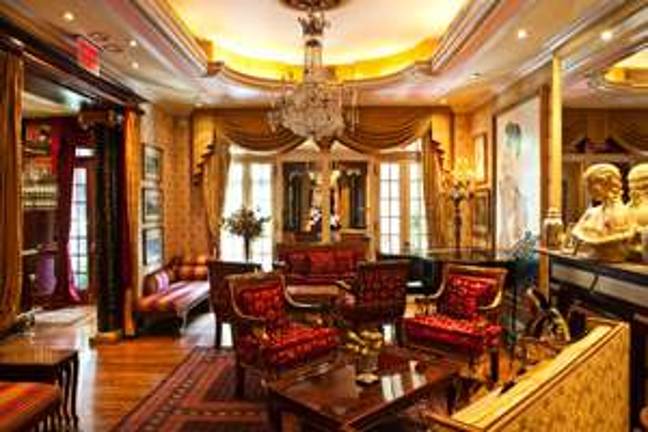Anna Karenina Comes to New York City

FireBird navigates the frozen tundra of the Theater District "There is no such thing as Russian food," says FireBird executive chef Paul Joseph. And while there are entire neighborhoods in Brooklyn that would take jingoistic offense at such a suggestion, over the course of a meal at FireBird (365 W. 46th St.; firebirdrestaurant.com), this starts to make a sort of existential sense. There is no Russian food; everything is Russian food. There is no Matrix; we are so deep within the Matrix we can no longer see it. Or, more plainly, there is no Russian food in the same way there is no American food, and to write a menu of such would by necessity include dishes that are actually Southern and Midwestern, or of Italian or Hungarian origin. With a few exceptions, the foods we love are sloppily borrowed from other traditions, while the ones we can claim to have originated are fiercely regionalized (try putting a hot dog on that menu and just wait for the New Yorkers and the Chicagoans to start the next civil war). But while our culinary history is one of the poor, the tired, the huddled masses bringing their mom's recipes west to be misinterpreted for the next three or four generations, the Russians did this cultural appropriation dance with style. OK, style and a hearty dose of the old iron fist: When they weren't copying the grand style of the French, the tsars were taking an interest in the cuisine of their neighbors by invading and forcing some poor serf to keep cooking it for them. Style is where FireBird excels. If you've ever walked the side streets west of Times Square and lamented the number of beautiful old townhouses turned rather unceremoniously into restaurants, FireBird will set those doubts to rest permanently. With grand, curtained doorways and plush, padded banquettes providing an air of opulent coziness even when empty tables outnumber the occupied, there is no way the restaurant could exist anywhere else. It is a warren of these rooms, each encrusted with ancient daguerreotypes of men in fur coats, paintings of wintry street scenes, sepia-faded books and glass-enclosed suits of clothing, culminating in a parlor stuffed with settees situated around a fireplace under a grand crystal chandelier, marble busts looming. The menu is similarly lavishly appointed, with less clear results. Succumbing to trend, every ingredient in every dish is listed along with its provenance, whether local from the Hudson Valley, as the wild boar, or Armenian, as the lamb. While it makes for interesting reading, it is only occasionally useful. Do we need to be told what a kulebiaka is (it's a thrillingly Old World dish of puff pastry enclosing salmon, mushrooms and rice)? Absolutely. Do we gain anything from the knowledge that the chicken Kiev comes with a rocambole garlic sauce, which, it can only be presumed, was the demi-glace-ish pool in the bottom of the unwieldy bowl in which the cutlet is balanced? Not particularly. The dishes that sing best are those left in their natural state. The menu begins with a page of caviars served with blini and "traditional accompaniments," and if budget allows, they are a necessity, along with any selection from the two-page spread of the vodka list. There are a number of salads that illustrate the European fascination with mayonnaise; the best of these is the Olivier, which combines cubed carrots, cornichons, kielbasa and potatoes to bizarrely tasty effect. It's served on top of a thin black bread toast and topped with a beautifully poached quail egg, and it tastes of hardship and luxury all at once, like it originated in an isolated palace on the frozen steppes. While there may not be any such thing as Russian food, there is a Russian attitude: oversized, gilt-edged, slightly out of touch, proud. Too many restaurants in New York manage only to capture a few of these contradictory impulses; by these standards, FireBird is the most Russian restaurant in New York.